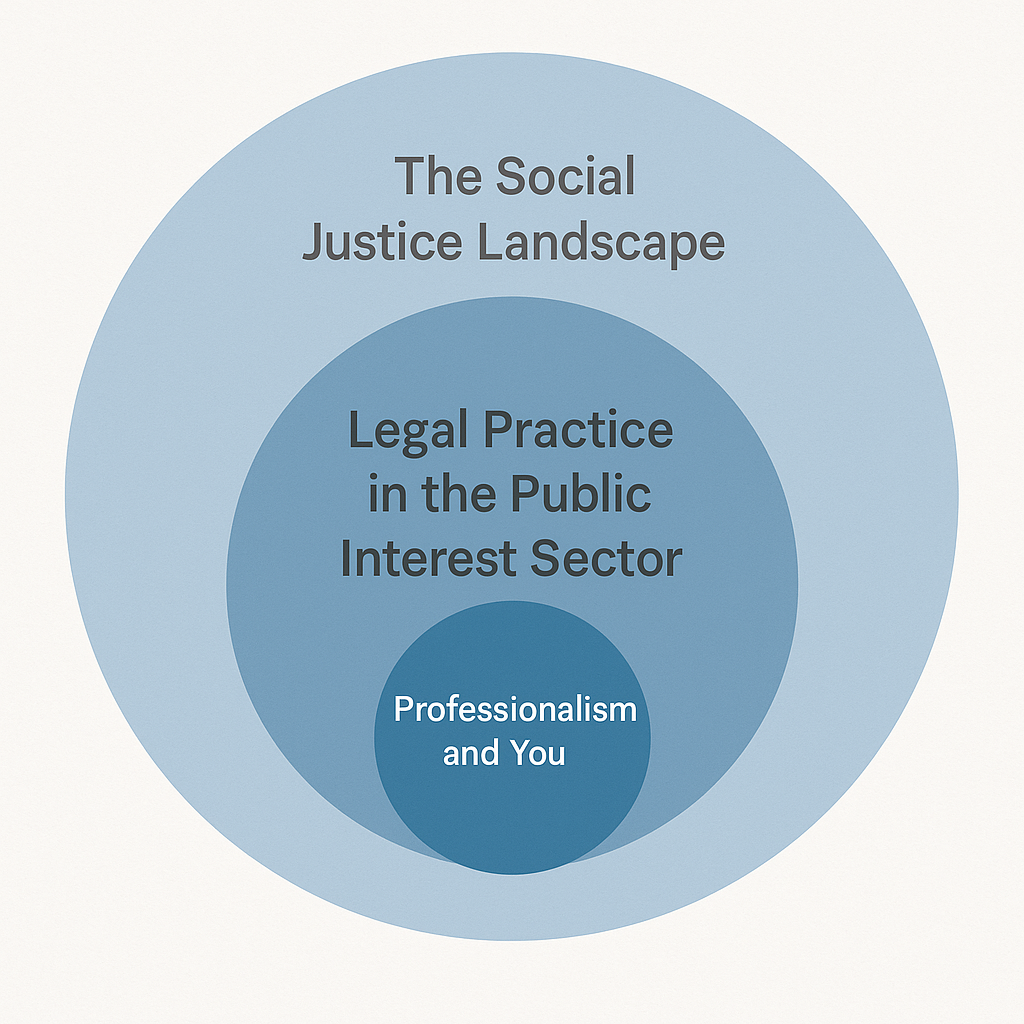7. What is and why do reflective practice in climate clinics?
Reflective practice in CLE builds the skill of learning how to learn and supports the development of an ethical professional identity. In a climate clinic, this can extend to reflecting on the role and function of legal ethics in a climate context while doing legal work for a clinic client. It allows students to understand their own ethical framework in a context of practice for the climate. The generally small student enrolment of a clinic, an emphasis on guided and structured reflective practice, and the powerful catalyst of the real-life legal matter make the clinic a fertile site for this transformative learning to occur.
Reflection and reflective practice are considered an integral feature of clinical methodology and have been described as the ‘magic ingredient’ that transforms experience into learning[1] and as a ‘core competency’ for legal professionals.[2] They allow experiences to be seen through a future gaze. In a climate clinic, this includes a future affected by weather extremes and climate inequities.[3] Reflection in clinic takes place formally (often as a structured and assessed part of the curriculum) and informally, between legal educators or supervisors and students, and between students.
Many clinical teachers use Leering’s model of reflective practice.[4] It identifies five types or aspects of reflection: reflection on action, reflection in action, self-reflection, critical reflection and reflection in community. The climate exists in plural ways within this framework. It could be the recognition of approaches to a client’s matter informed by a different discipline. It could be a trigger for action, it could be a context for self-reflection, and it could be a motivating factor for community activism.
In the context of a climate clinic, reflection provides not only a means by which students can develop an integrated understanding of what is needed to practice across doctrinal and discipline boundaries but also what it means to be a practitioner for the climate.
One commonly agreed view in the scholarship on reflection is a feature of cycles of learning. Through reflection, students identify skills development and values, which inform further learning. This can help students clarify their views about justice in law, therefore helping them navigate their future in the law,[5] and the development of an ethical and healthy[6] professional identity.

KEY QUESTIONS
- What are the benefits of engaging in reflective practice? How might those benefits be realised in a climate clinic?
- Using Leering’s reflective framework, how are your reflections on your values similar to or different to the values of the community on the issue of climate change? How can you navigate those differences (if any) in a climate clinic and in a legal career?
- Adrian Evans et al, Australian Clinical Legal Education: Designing and Operating a Best Practice Clinical Program in an Australian Law School (ANU Press, 2017) 156. ↵
- Michele Leering, ‘Conceptualizing Reflective Practice for Legal Professionals’ (2014) 23(1) Journal of Law and Social Policy 83. ↵
- Intergovernmental Panel on Climate Change, Climate Change 2023: Synthesis Report. Contribution of Working Groups I, II and III to the Sixth Assessment Report of the Intergovernmental Panel on Climate Change (Report, 2023) <https://www.ipcc.ch/report/ar6/syr/downloads/report/IPCC_AR6_SYR_LongerReport.pdf> ch 11. ↵
- Michele M Leering, ‘Integrated Reflective Practice: A Critical Imperative for Enhancing Legal Education and Professionalism’ (2017) 95(1) Canadian Bar Review. There is a growing literature on reflective practice in law and some suggested starting points for further reading are given in the list of resources. ↵
- Ibid 69, 77. ↵
- Kennon M Sheldon and Lawrence S Krieger, ‘Does Legal Education Have Undermining Effects on Law Students? Evaluating Changes in Motivation, Values, and Well-being’ (2004) 22(2) Behavioral Sciences & the Law 261. See also Fiona McLeay, ‘Wellness for Law Forum 2024 Speech by Fiona McLeay, Victorian Legal Services Board CEO and Commissioner’ in Judith Marychurch, Kate Fischer Doherty and Jacqueline Weinberg (eds), Wellness for Law: Reflecting on the Past Shaping the Future (LexisNexis, 2025) 15. ↵

